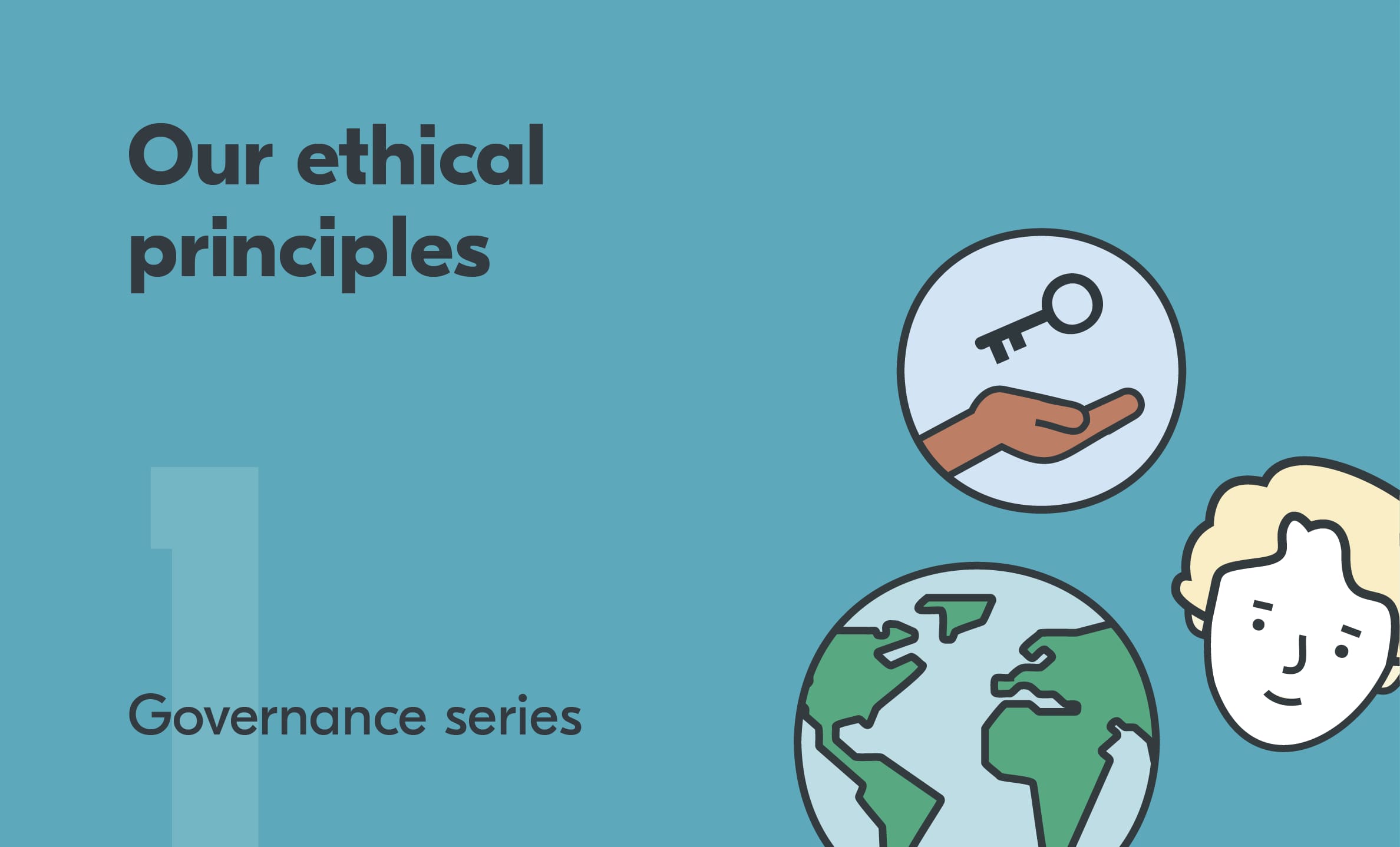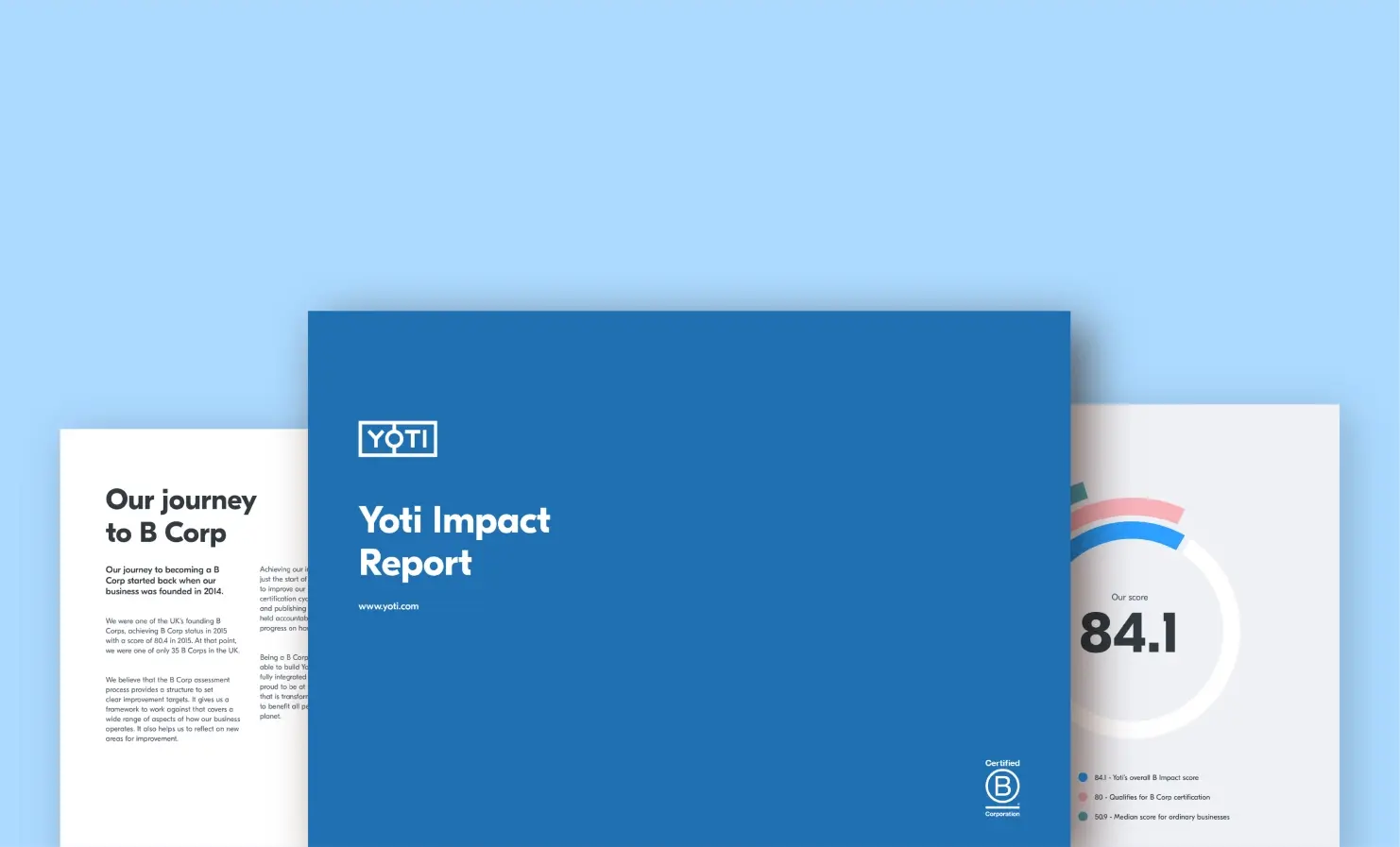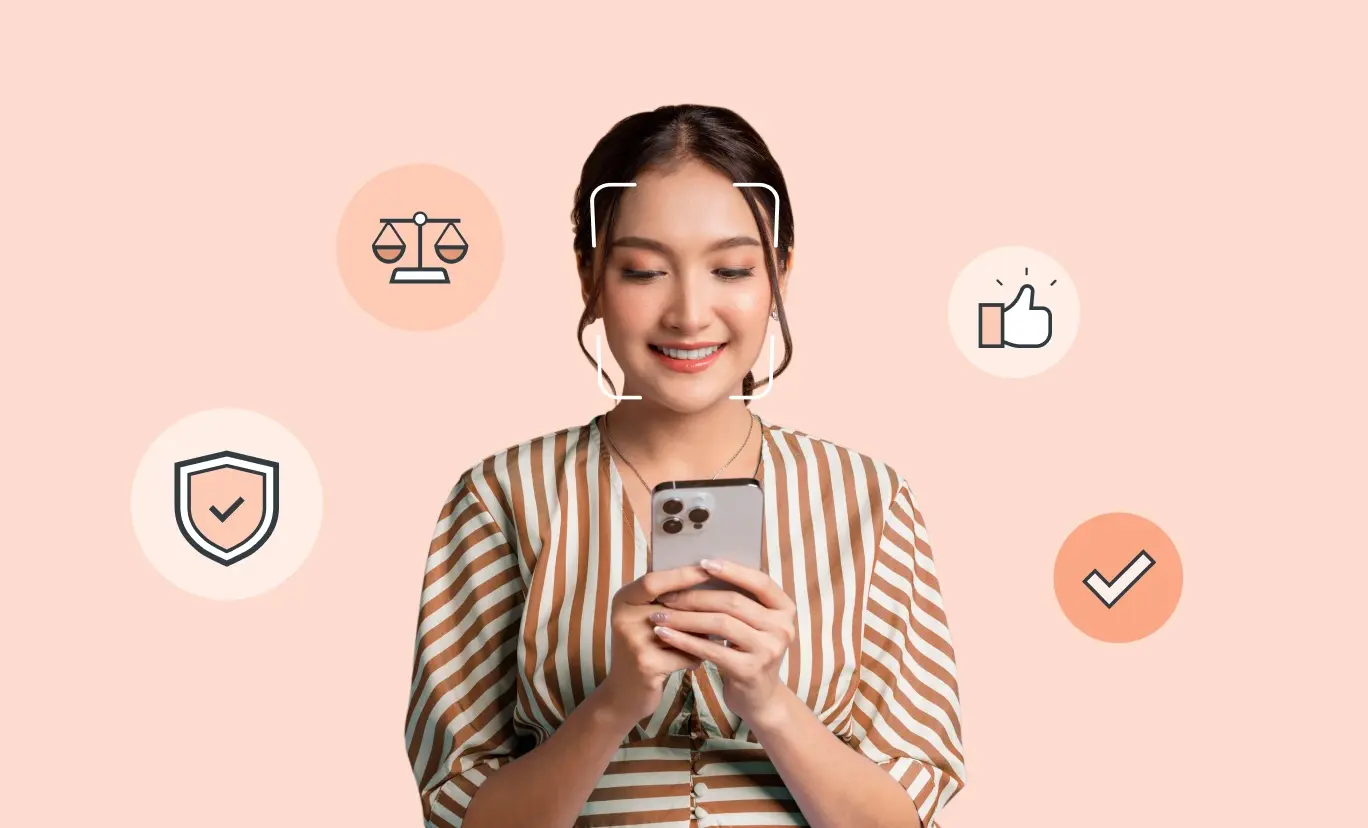
As we made our way through our most recent B Corp certification process, we found that out of the five main assessment areas, we were particularly strong in the Governance section. So we thought we’d take a bit of a deep dive into our governance processes to see how we’ve achieved a score that we’re really quite proud of.
We’ve created a three-part series explaining the key measures we have in place and the effect that these structures and policies have on our day-to-day activities, which ultimately result in us doing better business.
When Yoti was founded, one of the first things we established were our ethical principles, so we’re kicking off our series there.
What are our ethical principles?
Our seven ethical principles guide our everyday decisions and ensure that we always strive to do the right thing. They are to:
- Always act in the interest of our users
- Encourage personal data ownership
- Enable privacy and anonymity
- Keep sensitive data secure
- Keep our community safe
- Be transparent and accountable
- Make Yoti available to anyone
Alongside various other frameworks, which we will explain in later articles, we use these principles to guide all our decisions. That could be how we interact with other businesses, how we build our products or the work we do on a wider level, such as in the regulatory field.
Why did we come up with them?
We’ve had our ethical principles in place since we formed the company back in 2014. We knew that in the complex world of digital identity, we would come up against some difficult ethical questions and problems. We decided that one of the ways to go about tackling this was to create an ethical framework that provided guidance and accountability for our actions. And this is something that we created before we even had a product to sell and before we started making money. Because we knew we had to get this right from the very beginning.
The result
So, what does this mean in practice?
We built an ethical framework on which to run our business, including how we interact with staff and the community, and how we build ethical technology.
This has led to us creating a digital identity platform that empowers, enables and protects its users. The technology behind our products means that it is impossible for anyone other than the user to access their data. As a result, this data is secure and users retain full privacy and control over their personal information.
We’re also working to build a safer community. Yoti is an active participant in the online safety community, driving social purpose beyond our own products. Not only do we think that we should play a part in keeping individuals safe from fraud, but we believe that technology has the power to create age-appropriate experiences and protect children. Our privacy-preserving technology is already being used by global brands to create safer online communities.
Transparency and accountability are also paramount to how we operate. That’s why we have an external Guardian Council, an internal Ethics & Trust Committee and a Board who are legally required to consider the impact of our decisions on all stakeholders (through our commitment to being a B Corp). We have also made public pledges to a number of third party organisations and accreditations and have made multiple public commitments to building ethical technology. We’ll go into these further in the rest of this series.
We’re also working to make Yoti available to everyone and give anyone in the world the tools to own and control their digital identity. To achieve this, we continue to invest in our facial age estimation AI so that it works fairly across all skin tones, ages and genders. Whilst we’re working on this, we publish white papers where we detail our ongoing progress on bias and accuracy levels. We hold roundtables to invite scrutiny to our approach to building facial age estimation technology and work with NGOs to improve its accessibility and inclusivity for minority and vulnerable groups.
Guided by our seven ethical principles, we hope to transform the way that we prove our age and identity. But we’re only going to do that if we can do it in the right way.



